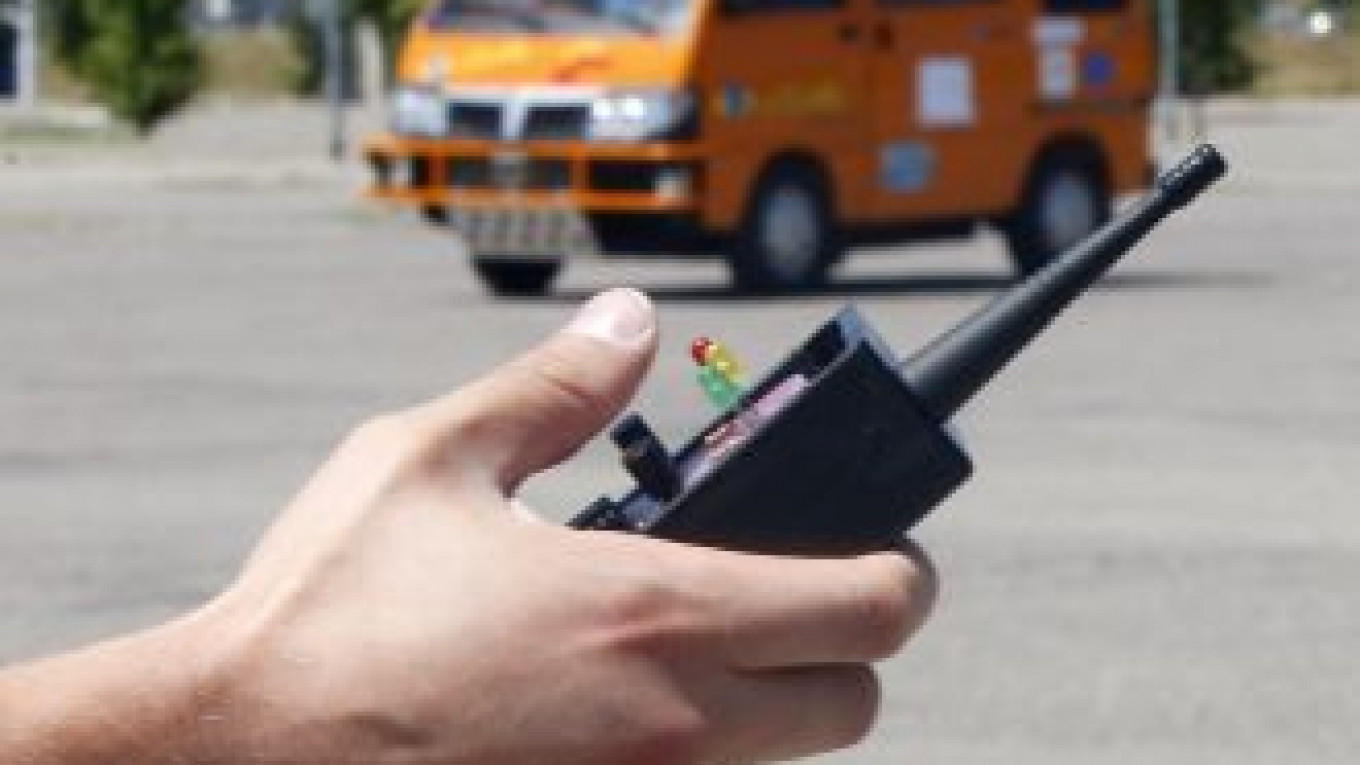MILAN — A pair of fender benders, two technology-loving hitchhikers and 22 hours blocked at the Russian border. That’s the balance sheet so far for a team of driverless vehicles on a 13,000-kilometer roadtrip from Europe to China.
A group of Italian engineers from the University of Parma’s Vislab are testing sensory technology that allows unmanned vehicles to avoid obstacles on the longest-ever roadtrip of driverless technology.
But Moscow drivers, it turns out, are not ready to share the roads with autonomous vehicles — so the automatic driving mechanism had to be turned off.
For the journey, the driverless vehicles travel in pairs, with the driverless vehicle taking cues from a lead van being driven normally. But in Moscow, drivers cut in between the vehicles, blocking the signal, and the unmanned vans’ impulse to stay within the traffic lines was futile given the chaotic driving patterns, project leader Alberto Broggi said Tuesday. “It was impossible. In crowded areas, if no one is respecting the rules, there is no way to navigate. The only thing you can do is avoid hitting someone,” Broggi said, who is monitoring the journey and troubleshooting from Parma.
Yet, he would not rule out autonomous vehicles in chaotic situations in the future: The rules for the driverless vehicles would just have to be rewritten to match the environment.
The convoy has been logging roughly 200 to 230 kilometers a day, and was somewhere between Nizhny Novgorod and Saratov on Tuesday, two days after leaving Moscow where a pair of enterprising hitchhikers flagged them down with a banner endorsing future technology. They got a short 15-minute ride for their effort.
One month into the three-month journey, most errors have been human.
“We had a small accident — well, two small accidents, caused by human error. As far as the technology is concerned, everything has been smooth. We are very happy,” Broggi said.
The first accident occurred a couple of days into Russia when the group stopped for the day and got out of the vehicles. One team of engineers turned off the sensory equipment but neglected to switch off the automatic driving mechanism.
“So it was able to steer and drive, but it had no perception. It couldn’t see anything,” Broggi said. The vehicle drove right into the rear of another driverless van parked three meters away.
“The second accident is even more stupid than the first,” Broggi said.
One of the battery-powered vehicles was being loaded onto a truck to be recharged, and it banged into a truck, taking off a bumper.
The Italian scooter and vehicle maker Piaggio, which owns the four driverless vehicles, is sending spare bumpers, Broggi said.
The team also got stuck on the Russian border for 22 hours waiting for proper authorization to bring the vehicles into the country — not because of concerns over the unmanned technology, but for proof of vehicle ownership, Broggi said.
Vislab’s goal is to log 13,000 driverless kilometers by the time the convoy arrives in Shanghai on Oct. 28 for a final demonstration at the World Expo. So far, the vehicles have logged 2,300 autonomous kilometers of the total 4,100 kilometers traveled by the convoy to date, the balance in tow.
A Message from The Moscow Times:
Dear readers,
We are facing unprecedented challenges. Russia's Prosecutor General's Office has designated The Moscow Times as an "undesirable" organization, criminalizing our work and putting our staff at risk of prosecution. This follows our earlier unjust labeling as a "foreign agent."
These actions are direct attempts to silence independent journalism in Russia. The authorities claim our work "discredits the decisions of the Russian leadership." We see things differently: we strive to provide accurate, unbiased reporting on Russia.
We, the journalists of The Moscow Times, refuse to be silenced. But to continue our work, we need your help.
Your support, no matter how small, makes a world of difference. If you can, please support us monthly starting from just $2. It's quick to set up, and every contribution makes a significant impact.
By supporting The Moscow Times, you're defending open, independent journalism in the face of repression. Thank you for standing with us.
Remind me later.






